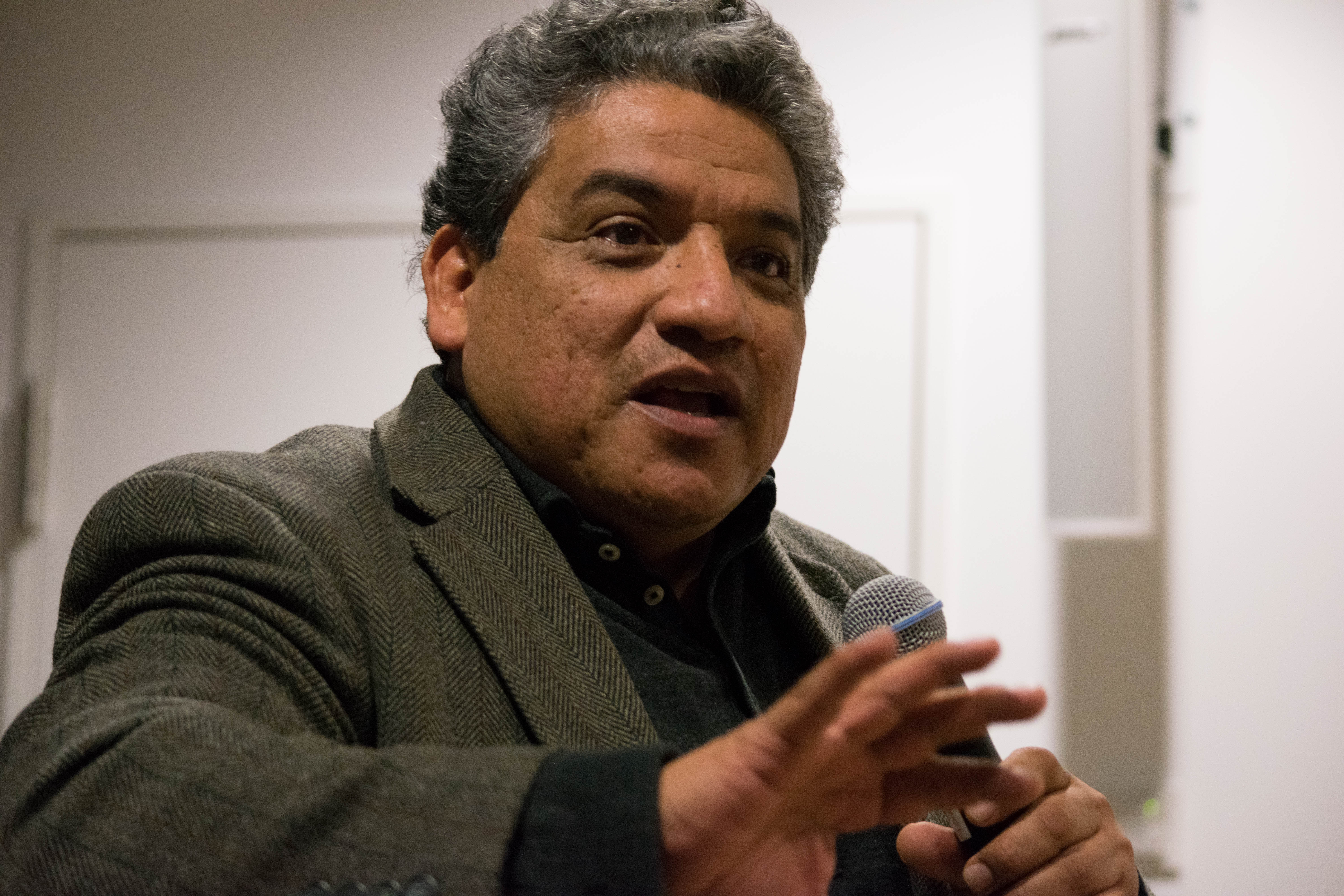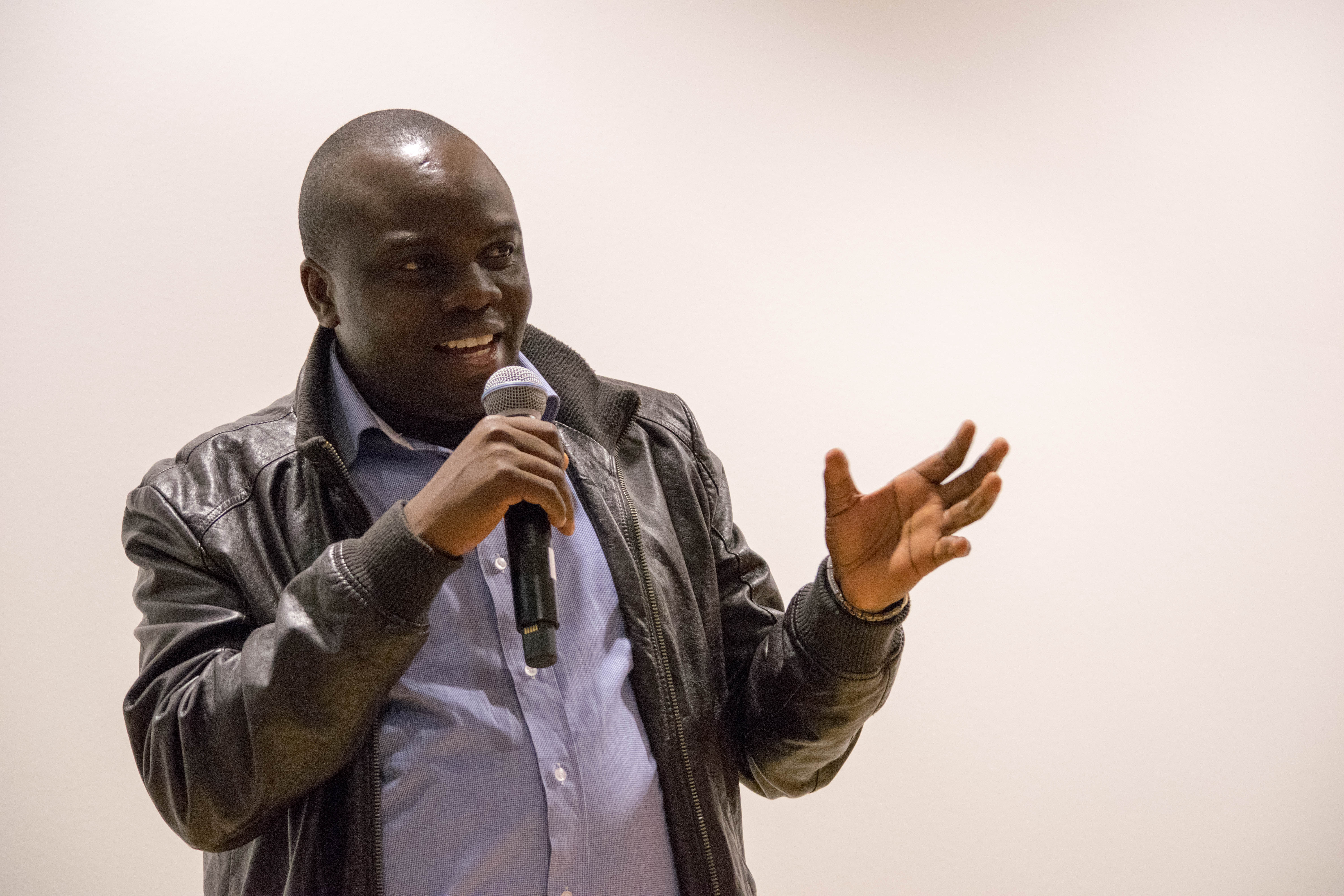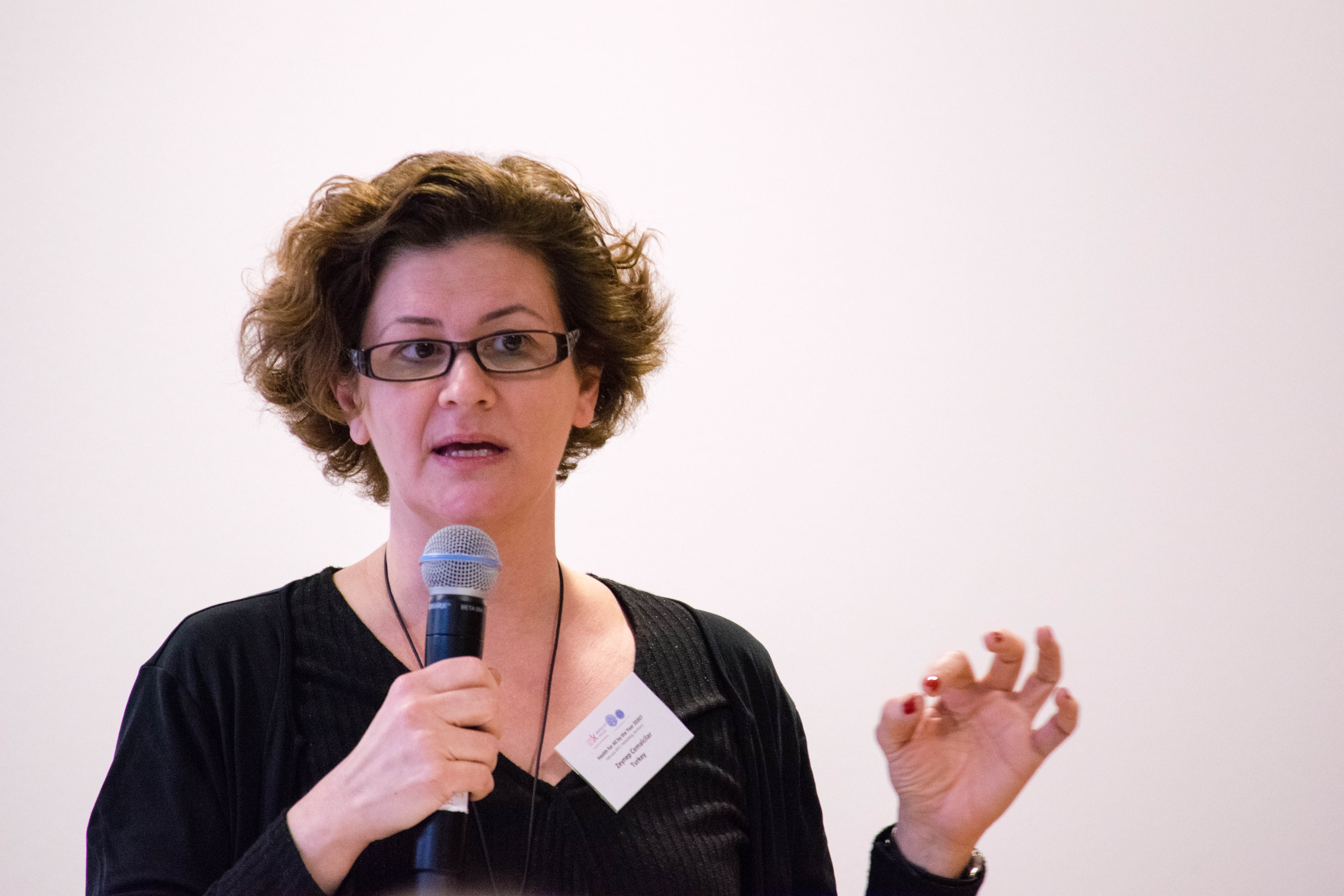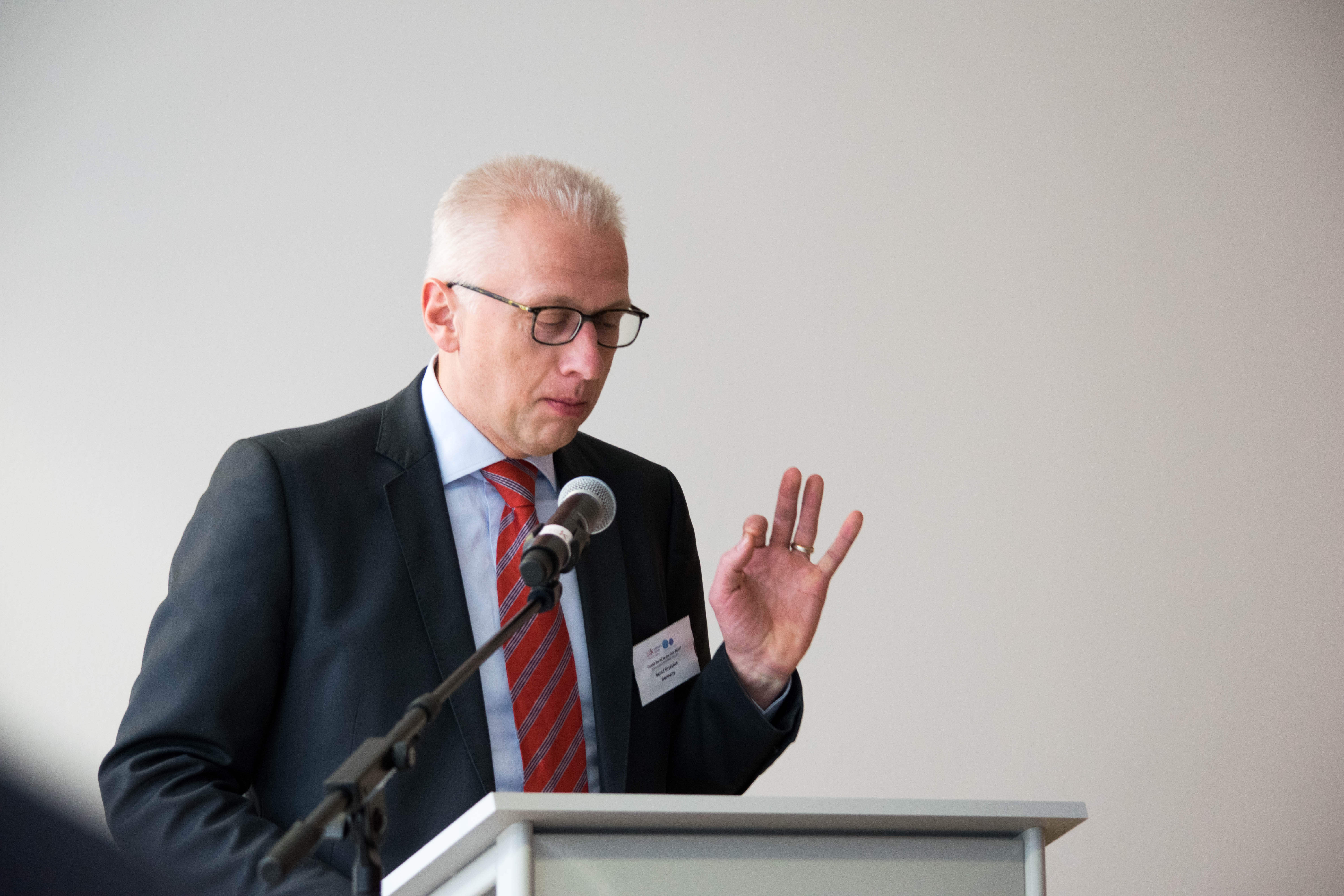Report
Thursday, February 16:
Universal Health Coverage, the present situation
Robert Yates / Project director of the UHC Policy Forum, London. The political economy of Universal Health Coverage (PDF)
Robert Yates
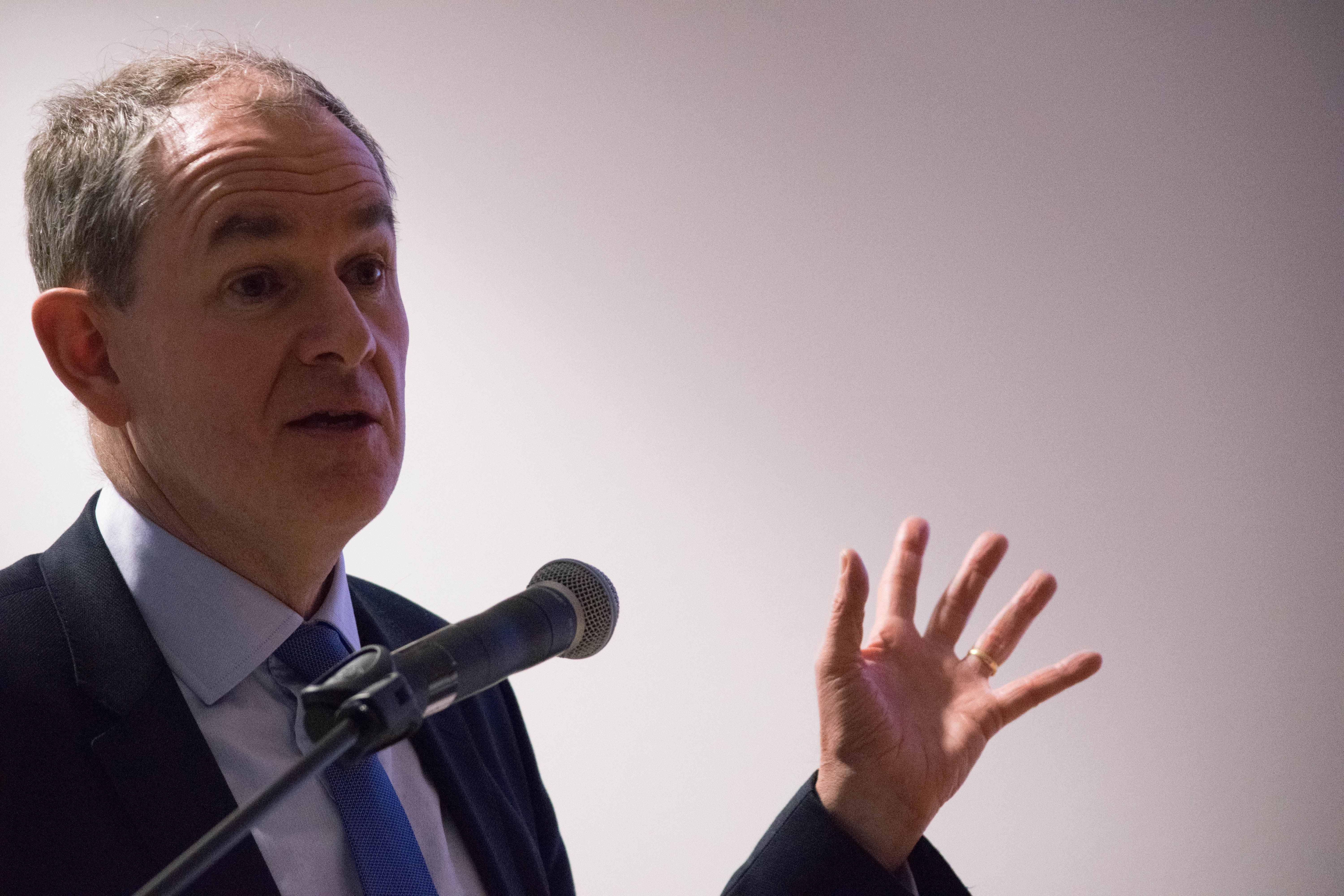
Robert Yates is an internationally recognized expert on universal health coverage (UHC) and progressive health financing. He is a senior fellow of Chatham House, Royal Institute of International Affairs, in London where he is Project Director of the UHC Policy Forum.
His principal area of expertise is in the political economy of UHC, with a focus on advising political leaders and governments on how to plan, finance and implement national UHC reforms. He has previously worked as a Senior Health Economist with the UK’s Department for International Development (DFID) and the World Health Organization, advising numerous governments in Asia and Africa on health financing policy and health systems reforms.
He holds a BA degree in Natural Sciences and Economics from the University of Cambridge and a MBA, from the University of Leeds.
Walter Flores / Director, Center for the Study of Equity and Governance in Health Systems (CEGSS). What are the challenges of UHC in post-conflict and fragile state countries?
Moses Mulumba / Advocate of the High Court of Uganda, Head of the Centre for Health, Human Rights and Development. The Quest for UHC through the Right to Health Lens in Uganda (PDF)
Gorik Ooms / Professor of Global Health Law & Governance, London School of Hygiene and Tropical Medicine. The right to health: a citizen’s right or a human right? (PDF)
Friday, February 17:
Session 1: The emergence of UHC as a rights-based global health policy framework
Speaker: Jeremy Shiffman (PDF)
Jeremy Shiffman
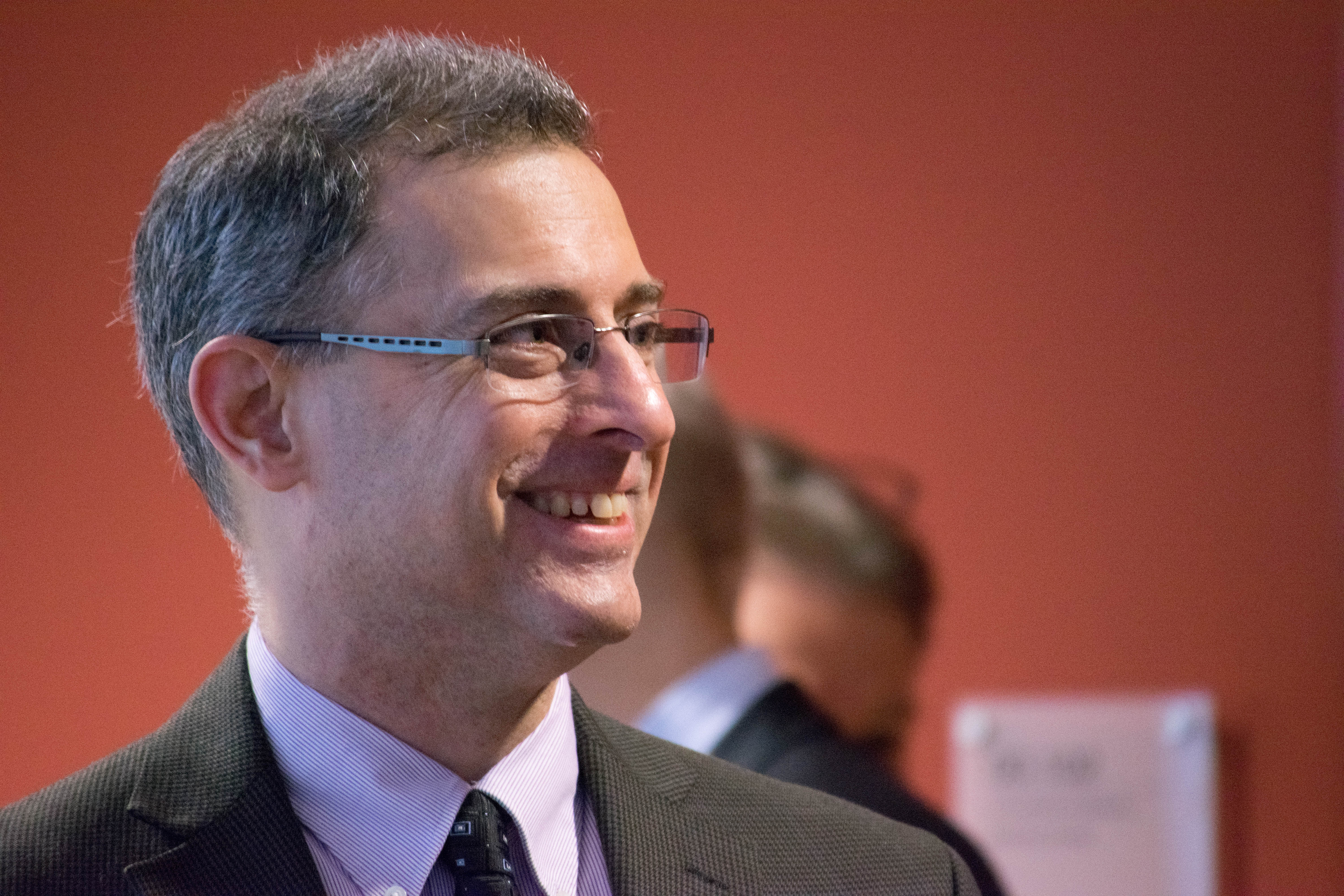
Jeremy Shiffman is Professor in the Department of Public Administration and Policy at American University in Washington, DC. A political scientist by training, his research focuses on the politics of health policy-making in low-income countries, and the global governance of health and social development. His research has been funded by the Gates, MacArthur and Rockefeller Foundations and the United States Agency for International Development, among other organizations. His work has appeared in multiple journals, including The Lancet, The American Journal of Public Health, and Population and Development Review. He is the inaugural recipient of the Gary and Stacey Jacobs Award for excellence in health policy research, and received the award for outstanding scholarship at American University’s School of Public Affairs. Across his career he has received five awards for excellence in teaching. He received a BA summa cum laude from Yale University in philosophy, an MA from Johns Hopkins University in international relations, and a Ph.D. from the University of Michigan in political science.
Respondent: Jale Tosun
Jale Tosun

Jale Tosun is a professor of Political Science at the Institute of Political Science. After studying political and administrative science in Konstanz and Pavia, she completed her PhD at the University of Konstanz on the topic of transformative change of environmental policy in Latin America and Eastern Europe. Jale Tosun was a Research Fellow at the Mannheim Centre for European Social Research before coming to Heidelberg in October 2013 as an assistant professor of International and Comparative Political Economy. She has been a professor of Political Science since March 2015. Her teaching and research focuses mainly on the comparative study of regulation in areas of environment, energy, and climate change, as well as on distributive conflicts within the European Union and the influence of the EU on regulatory measures in third-party states. She is an External Fellow at the Mannheim Centre for European Social Research, which, until February 2015, was the home of the CUPESSE project. The project – Cultural Pathways to Economic Self-Sufficiency and Entrepreneurship – coordinated by Jale Tosun, comparatively examines the many facets of young adults’ employment and economic activities in Europe and is funded by the European Union’s Seventh Framework Programme (project number 613257).
Chair: Zeynep Cemalcilar
Panelist Public Health: Kevin McCarthy
Kevin McCarthy

Kevin McCarthy currently works in the health sector in the Directorate-General for International Cooperation and Development – EuropeAid, of the European Commission. He follows health sector policy and development, AMR and health research and development, including the WHO Global Observatory on Health R&D. He also worked in the Policy and Coherence unit on STI issues, IPR, policy coherence and the post-2015 development agenda. He was previously Head of Sector Public Health in the Health Research Directorate of Directorate-General for Research of the European Commission. Mr. McCarthy had responsibility for the Pillar: "Optimising the delivery of health care to European citizens" as well as international public health and health systems, under the Health Theme of the Cooperation Programme of the 7th Framework Programme for Research (2008-2013).
Panelist Law: Anja Seibert-Fohr
Anja Seibert-Fohr
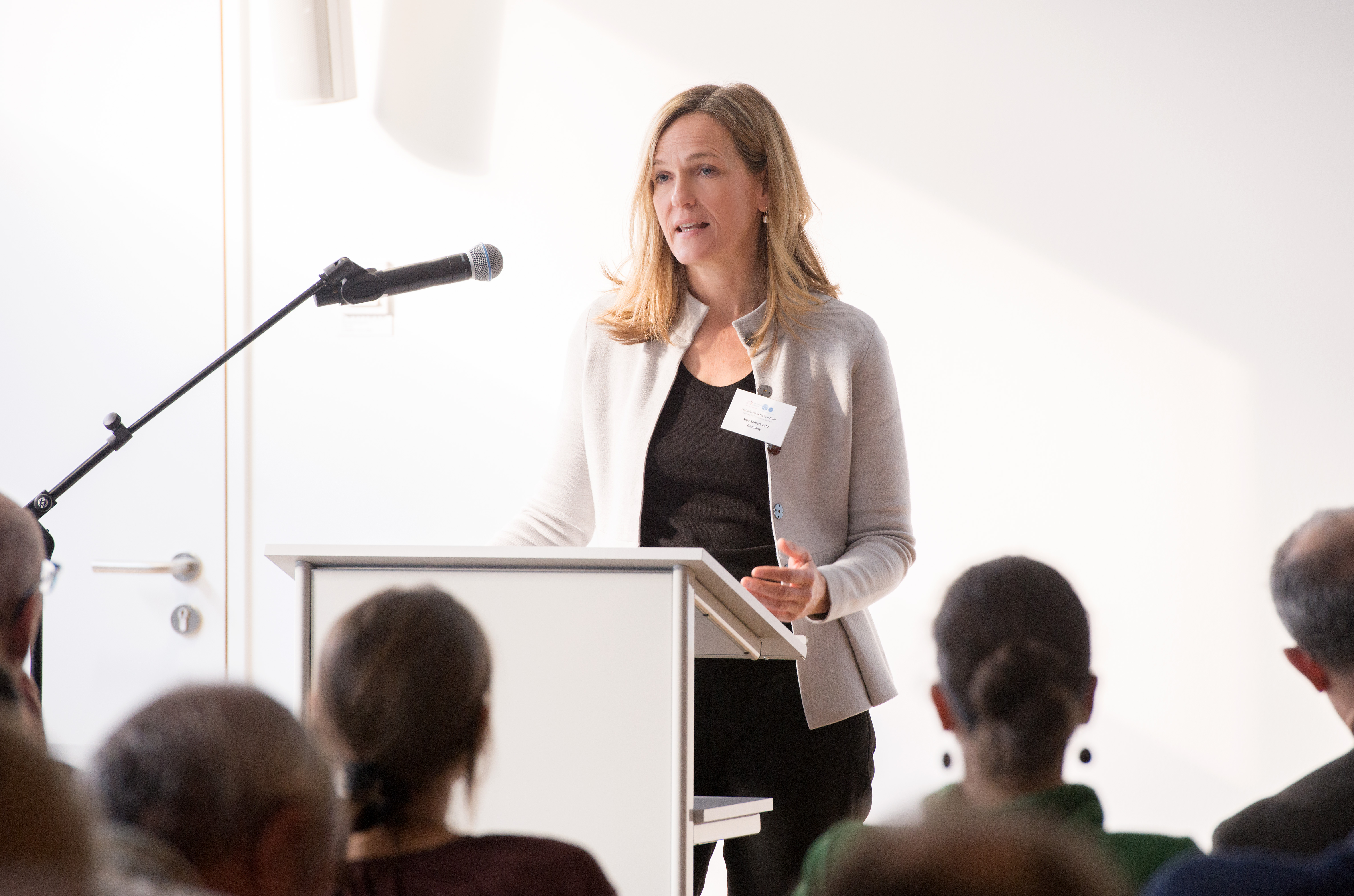
Anja Seibert Fohr is Vice-Chairperson of the United Nations Human Rights Committee and holds the Hengstberger Chair of Public Law at the University of Heidelberg. Prior to her appointment to the Law Faculty in Heidelberg she served as a Director of the Institute for International and European Law at Göttingen University and headed the Minerva Research Group at the Max Planck Institute for Comparative Public Law and International Law in Heidelberg. She hold German and U.S. law degrees, received her Doctorate in Juridical Science from GWLaw and her “Habilitation” from the University of Heidelberg. In the course of her academic career Professor Seibert-Fohr has been a visiting scholar at Georgetown University and a Herbert Smith Visiting Professor at Cambridge University. Her research focuses i.a. on International and European Human Rights Law and the Rule of Law.
Session 2: The international dimension of UHC: obligation or charity?
- Session Summary (PDF)
- Video: K. Srinath Reddy (1)
- Video: K. Srinath Reddy (2)
- Video: K. Srinath Reddy (3)
- Video: K. Srinath Reddy (4)
- Video: Albrecht Jahn
- Video: Achim Lang
Speaker: K. Srinath Reddy
K. Srinath Reddy
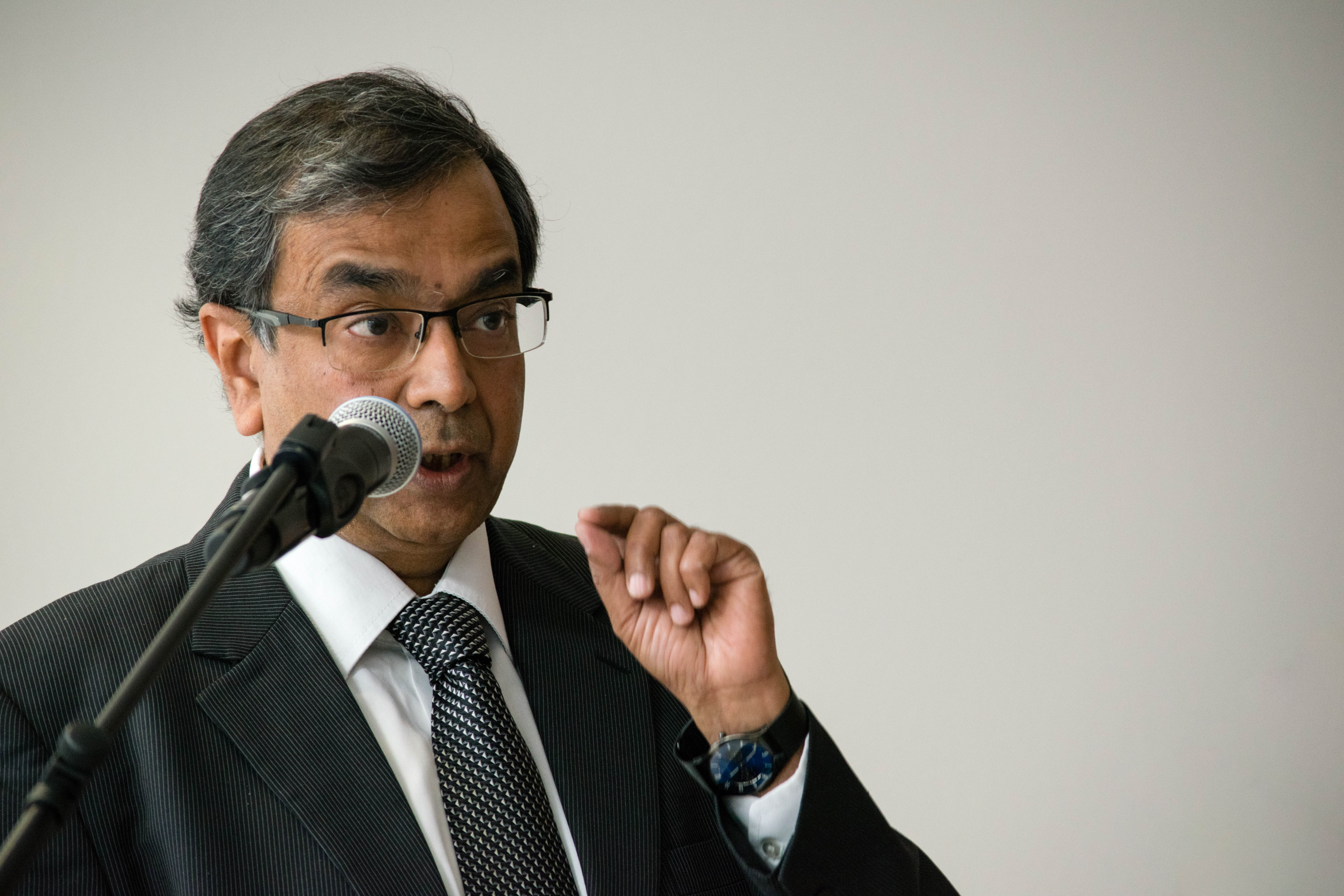
K. Srinath Reddy is President of the Public Health Foundation of India and formerly headed the Department of Cardiology at All India Institute of Medical Sciences. He was appointed as the First Bernard Lown Visiting Professor of Cardiovascular Health at the Harvard School of Public Health in 2009 and is an Adjunct Professor of the Rollins School of Public Health, Emory University and Honorary Professor of Medicine at the University of Sydney. He served on many WHO expert panels and has been the President of the World Heart Federation (2013-14). He chaired the Core Advisory Group on Health and Human Rights for the National Human Rights Commission of India for several years and recently the High Level Expert Group on Universal Health Coverage, set up by the Planning Commission of India. Prof. Reddy is a member of the Leadership Council of the Sustainable Development Solutions Network (SDSN), established to assist the United Nations in developing the post-2015 goals for sustainable development where he chairs the Thematic Group on Health.
Respondent: Albrecht Jahn (PDF)
Albrecht Jahn
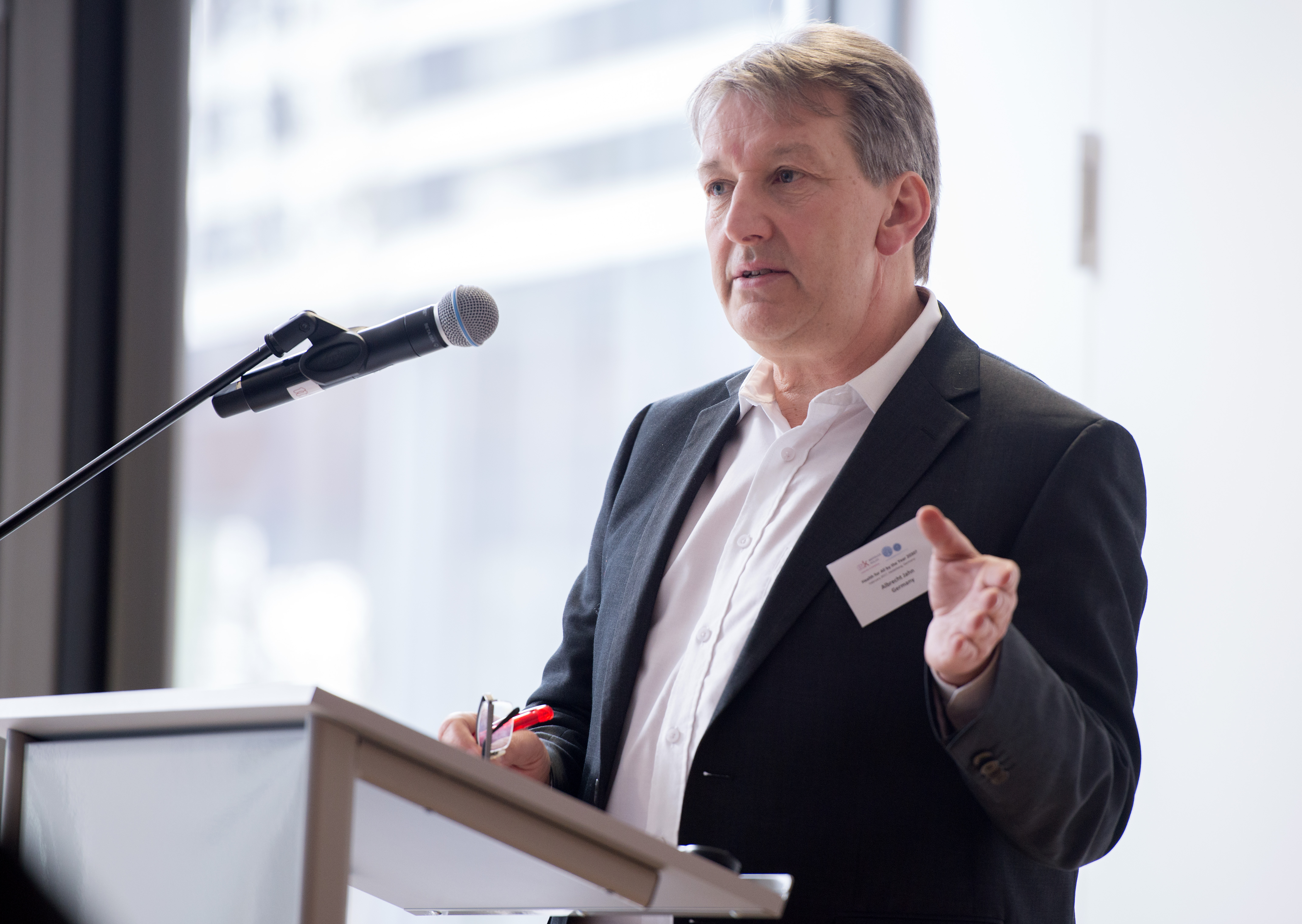
Prof. Albrecht Jahn, MD, PhD, MSc Community Health, MSc Biol., is a medical doctor and biologist by training. He is a consultant for obstetrics and gynecology, and public health specialist. After several years of clinical work in Germany, Kenya and Tanzania, he joined the Institute of Tropical Hygiene at the University of Heidelberg as senior lecturer and researcher in 1992. He then worked with the European Union’s Directorate General for Research as Scientific Officer, covering international cooperation.
He then joined the Institute of Public Health at Heidelberg University as where he heads the unit on Global Health Policies and Systems. Since 2016 he is a Marsilius Fellow of Heidelberg University with an interdisciplinary project on the right to health and Universal Health Coverage.
His main current research areas are (a) The MDG to SDG transition, (b) Migration and Health, (c) UHC and Global Health Security, and (d) rights-based approaches towards universal health coverage and the post-2015 agenda.
Chair: Gorik Ooms
Gorik Ooms
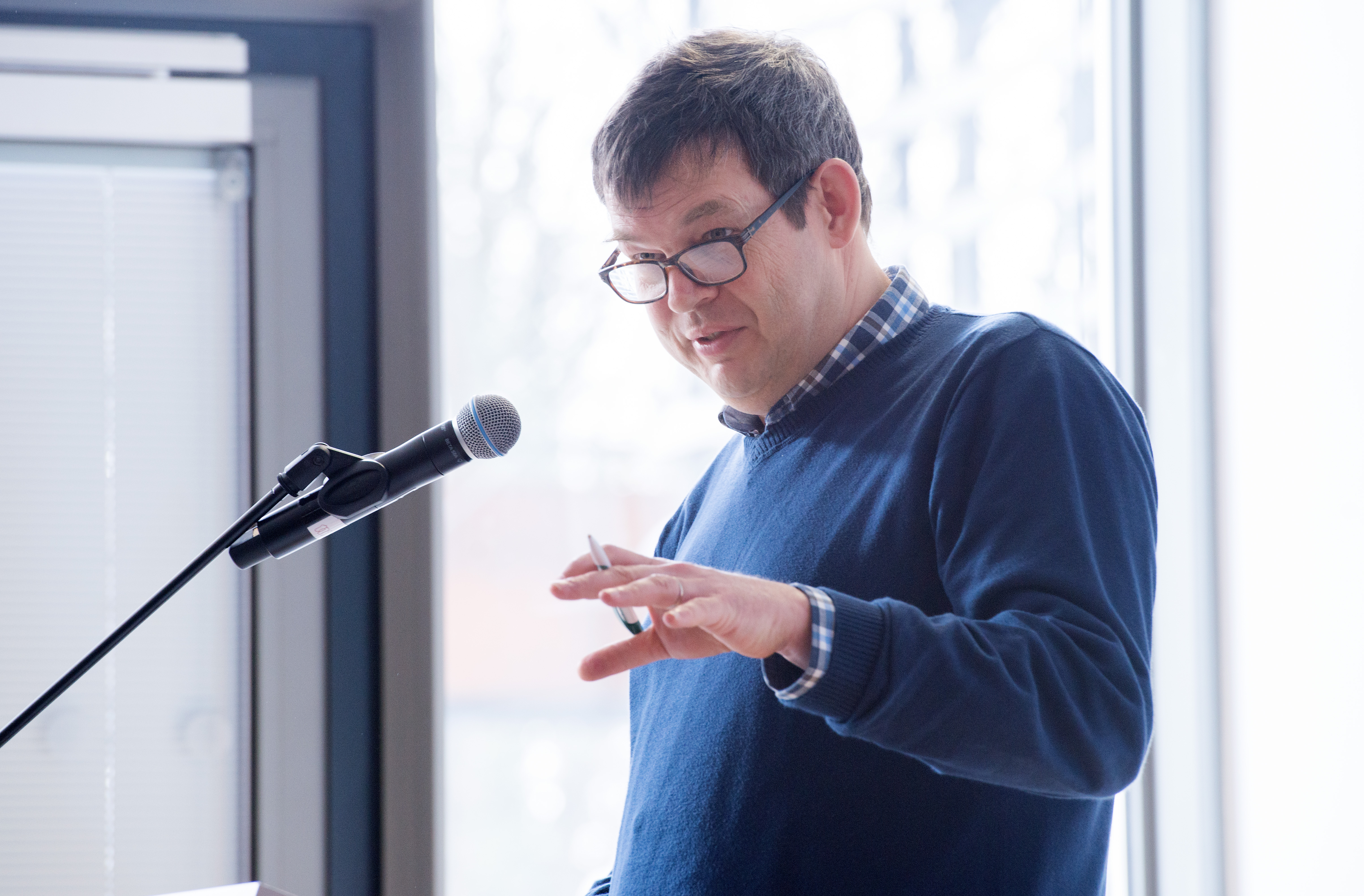
Gorik Ooms is a human rights lawyer and a global health scholar, Professor of Global Health Law & Governance at the London School of Hygiene & Tropical Medicine, Adjunct Professor at the Law Faculty of Georgetown University, and Visiting Professor at the Faculty of Medicine and Health Sciences of Ghent University. Between 1990 and 2008, he worked with Médecins Sans Frontières Belgium in different positions, and as Executive Director from August 2004 until June 2008. He was a member of the Lancet-University of Oslo Commission on Global Governance for Health and is a member of the Lancet-O’Neill Institute, Georgetown University Commission on Global Health and the Law.
Panelist Political Sciences: Achim Lang
Achim Lang
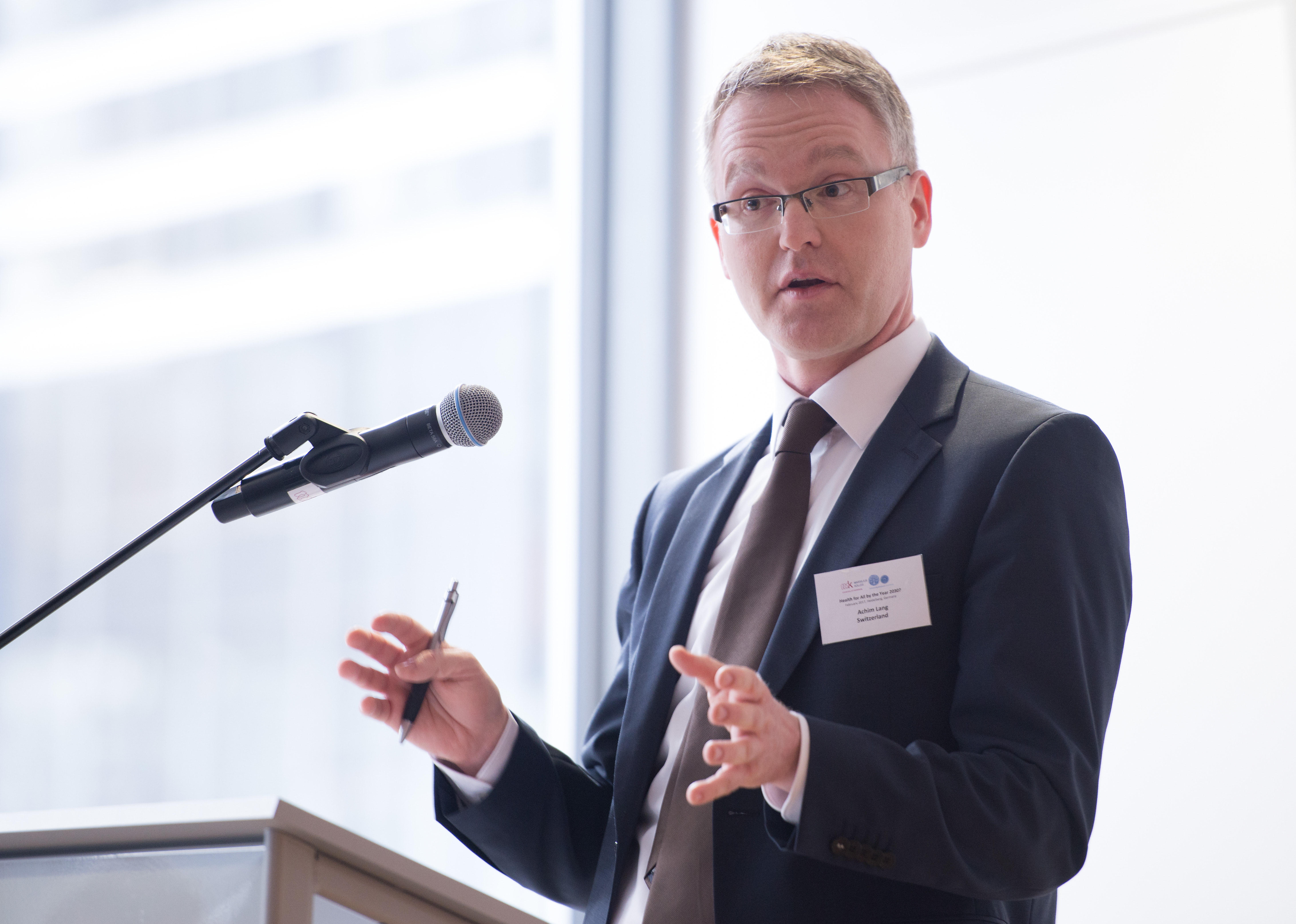
Achim Lang is head of the center for public governance at the Institute of Public Management at the Zurich University of Applied Sciences in Switzerland. He received his doctoral degree at the Department of Politics and Public Administration at the University of Konstanz, Germany.
His research interest focus on collaborative governance where he explores ways to strengthen inter-sectoral participation of various actors, medical technology regimes which includes the nexus between research and technology policy and reimbursement of medical technology, and public corporate governance where he explores ways to foster good governance of state-owned enterprises. His research is published in journals such as Globalization and Health and Administration & Society.
Panelist Law: Stéphanie Dagron
Stéphanie Dagron
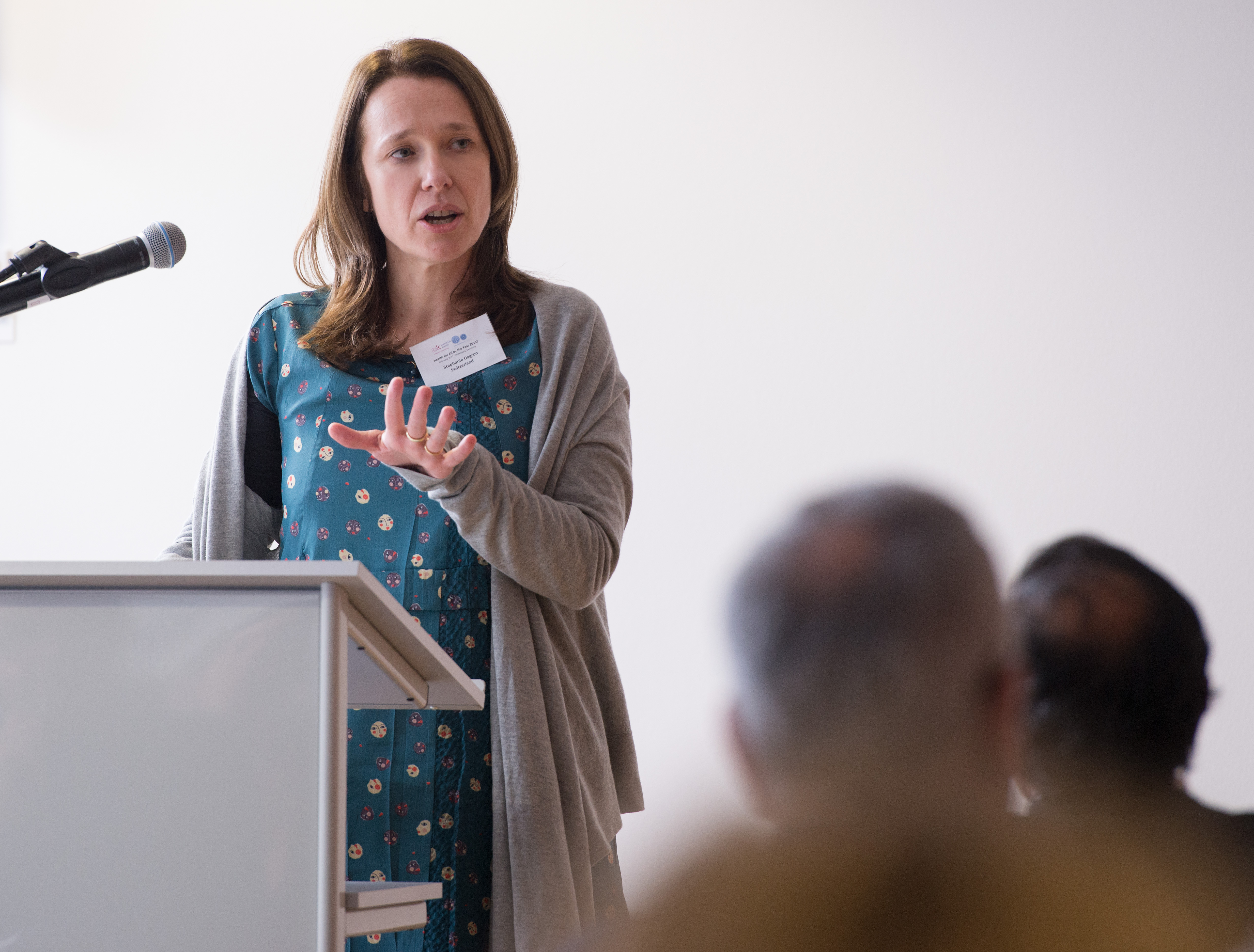
Stéphanie Dagron est Professeure ordinaire à l’Université de Genève depuis février 2016. Elle est rattachée au Global Studies Institute et membre de la Faculté de droit. Stéphanie est aussi Professeure boursière du Fonds national suisse de la recherche scientifique (FNS) et conduit un projet de recherche sur le thème « juridification of global health concerns: implications for health prevention, treatment and health systems ». La première partie de ce projet a été conduite à l’Université de Zurich où Stéphanie était Professeure et membre de la Faculté de droit de septembre 2013 à février 2016. Elle enseigne le droit international et européen de la sécurité sociale et de la santé.
Stéphanie Dagron a poursuivi ses études de droit en France (Poitiers), Allemagne (Marburg, Saarbrücken et Heidelberg) et au Royaume-Uni (Cambridge). Elle a obtenu un double-doctorat en droit délivré par les Universités de Poitiers (France) et de Saarbrücken (Allemagne). Durant sa thèse, elle a été boursière de l’Institut Max-Planck pour le droit international public et le droit comparé à Heidelberg (Allemagne). Elle a notamment été chargée de cours (enseignements en français, allemand et/ou anglais) à l'Université de Saarbrücken (1997-2000), Strasbourg (2001-2003), Poitiers (2006-2010) et Heidelberg (2003-2009). Elle a travaillé comme chercheuse postdoctoral à l’Institut für europäisches und deutsches Verwaltungsrecht de l'Université de Heidelberg (2003-2006), l'Institut Max-Planck de Heidelberg (2006-2007) et à l‘Université allemande des sciences administratives Speyer (2008-2009), puis comme Senior Research Fellow dans le cadre d’une bourse FNS Ambizione à l’Institut für Biomedizinische Ethik und Medizingeschichte de l’Université de Zurich.
Session 3: UHC and accountability
- Session Summary (PDF)
- Video: Lawrence O. Gostin (1)
- Video: Lawrence O. Gostin (2)
- Video: Lawrence O. Gostin (3)
- Video: Bernd Grzeszick
- Video: Remco van de Pas
Speaker: Lawrence O. Gostin
Lawrence O. Gostin
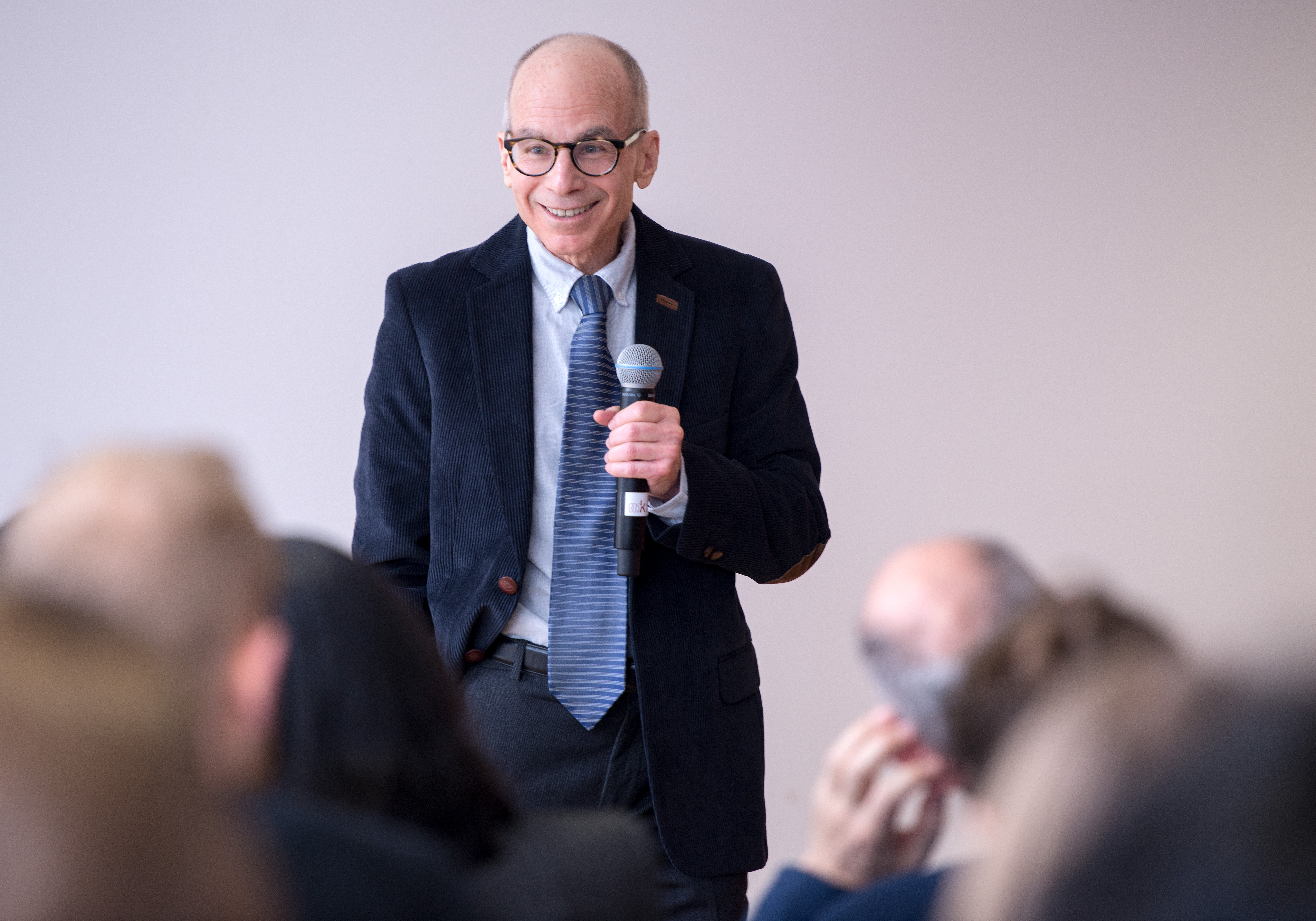
Lawrence O. Gostin, JD, LLD (hon.) is an internationally distinguished scholar on global health. Gostin serves as Faculty Director and Founding Chair, O’Neill Institute for National and Global Health Law, and holds Georgetown’s highest academic rank, “University Professor” conferred by the University president. He is Fellow/Member of the National Academy of Medicine, Royal Society of Public Health, and Council of Foreign Relations. Gostin is director of the World Health Organization Collaborating Center on Public Health Law & Human Rights and he has served on major WHO committees including the Director-General’s advisory committee for reforming the WHO. He served on two global commissions investigating WHO’s response to the West Africa Ebola outbreak. In 2016, President Obama appointed Gostin to the National Cancer Advisory Board.
Gostin holds international academic professorial appointments at Oxford University, the University of Sydney, and the University of the Witwatersrand, Johannesburg, South Africa, among others, and has received numerous awards and honorary degrees. The National Consumer Council (UK) conferred the Rosemary Delbridge Memorial Award on Prof. Gostin for the person “who has most influenced Parliament and government to act for the welfare of society.” The American Public Health Association awarded Gostin its Distinguished Lifetime Service Award. He is JAMA’s Legal & Global Correspondent.
Respondent: Bernd Grzeszick
Chair: Lisa Forman
Lisa Forman

Lisa Forman is a South African human rights lawyer and international human rights law scholar whose research explores the contribution of the right to health in international law to remediating global health inequities. She holds a Canada Research Chair Tier 2 in Human Rights and Global Health Equity. Her current research focuses on the strengthening of the concept of the minimum core concept within the international human right to health, and the development of post-2015 rights-based health development goals. In 1993, she completed a BA and LLB at the University of the Witwatersrand, and in 1995, completed articles of clerkship and the qualifying board exams to become a practising lawyer. From 1996-1999, Forman worked as a human rights lawyer on HIV/AIDS at the Centre for Applied Legal Studies at the University of the Witwatersrand, and then as a consultant on HIV/AIDS and human rights at the National Commission on Gender Equality. In 2001, Lisa completed a Masters in Human Rights Studies from Columbia University, and in 2006, a Doctorate in Juridical Science (SJD) from the University of Toronto’s Faculty of Law. Her SJD focused on the contribution of the right to health in international human rights law to increasing access to AIDS treatment, focusing on the case-study of South Africa. From 2006-2009, Forman completed postdoctoral training at the University of Toronto exploring the theoretical and practical relevance of international human rights law to medicines access in low and middle-income countries. From 2009-2017, she was the Lupina assistant professor in global health and human rights at the Dalla Lana School of Public Health, and Director of the Comparative Program on Health and Society (CPHS) at the Munk School of Global Affairs. She is now a tenured Associate Professor at the Dalla Lana School of Public Health.
Panelist Public Health: Remco van de Pas
Remco van de Pas
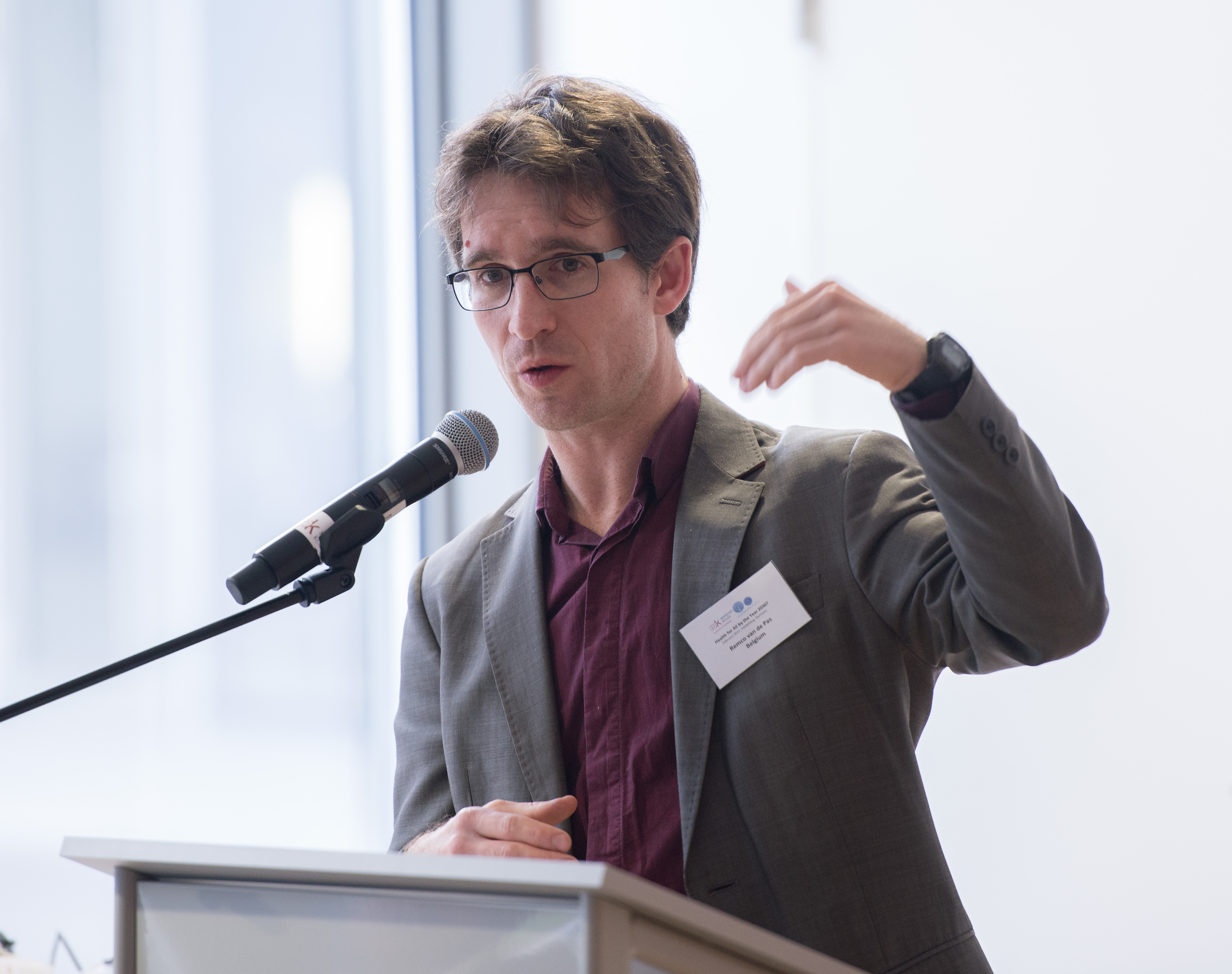
Remco van de Pas is a medical doctor and a global health scholar. He is a researcher at the Institute of Tropical Medicine, Antwerp in the health policy unit and a visiting fellow at Clingendael, the Netherlands Institute of International Relations. His PhD research (Faculty of Health, Medicine and Life Sciences, Maastricht University) focuses on global governance of the health workforce.
He teaches at universities and in international courses on global health governance, diplomacy and policy coherence for health, with a special attention on health workforce development and migration, health system strengthening and social protection. Remco is a board member of the Medicus Mundi International–Network Health for All.
He worked as health policy adviser for Wemos, a public health foundation advocating for social justice and as medical coordinator for the NGO Médecins du Monde, of which the largest part in West-Papua, Indonesia. Remco practiced in mental health services for refugees and migrants in Rotterdam.
Panelist Political Sciences: Suerie Moon
Suerie Moon

Suerie Moon, MPA, PhD is Director of Research at the Global Health Centre and Visiting Lecturer at the Graduate Institute of International and Development Studies, Geneva. She is also adjunct Lecturer on Global Health at the Harvard T.H. Chan School of Public Health. Her research and teaching focus on global governance, the political economy of global health (with a focus on innovation and access to medicines; trade, investment and intellectual property rules; outbreak preparedness and response; and development assistance for health), the evolution of international regimes, and innovative policies for addressing global problems. She was the co-founder and leader of the Harvard Global Health Institute’s Forum on Global Governance for Health, which became a focal point at Harvard for research, debate and strategic convening on issues at the intersection of global governance and health. She received a BA in History from Yale University, an MPA from the Woodrow Wilson School of Public and International Affairs at Princeton University, and a PhD from the Harvard Kennedy School of Government.
Session 4: Conclusions
- Session Summary (PDF)
- Video: Summary Zeynep Cemalcilar
- Video: Summary Gorik Ooms
- Video: Summary Lisa Forman
- Video: Till Bärninghausen
Key points by chair session 1: Zeynep Cemalcilar
Key points by chair session 2: Gorik Ooms
Key points by chair session 3: Lisa Forman
Closing remark: Till Bärninghausen
Till Bärninghausen
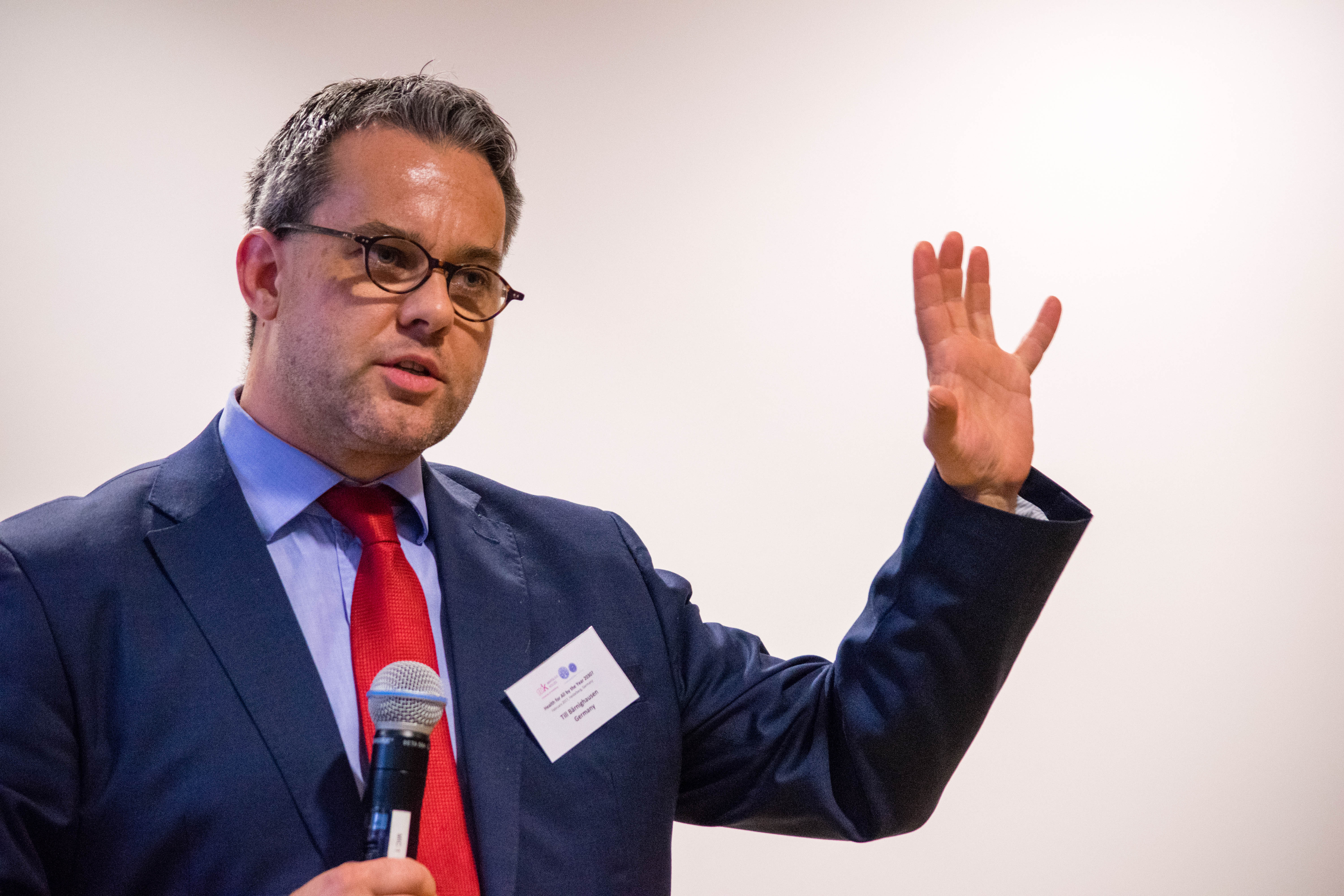
Till Bärnighausen is a population health researcher who focuses on three areas of research: (i) establishing the causal impacts of large-scale global health interventions – such as HIV treatment, HIV prevention, and childhood vaccination – on health, economic and social outcomes; (ii) identifying and testing innovations to improve the delivery of global health interventions through public-sector health systems, and (iii) developing new methods for applied population-based health research.
Till has been the principal investigator on grants from a range large science funders, such as the US National Institutes of Health (including four R01 grants), the European Union; the Alexander von Humboldt Foundation, the Wellcome Trust, the International Initiative for Impact Evaluation (3ie), Elton John AIDS Foundation, and the Clinton Health Access Initiative. He has also received research funding from Harvard, Rush Foundation, William F. Milton Fund, Andrew W. Mellon Foundation, the German Academic Exchange Service, International Development Research Centre Canada, USAID, WHO, UNAIDS and World Bank.
Till is Adjunct Professor of Global Health at the Harvard T.H. Chan School of Public Health in the US and a Senior Faculty at the Wellcome Trust’s Africa Health Research Institute (ARHI) in South Africa.
He has published more than 200 peer-reviewed articles, including in Science, PNAS, Lancet, and PLOS Medicine. His work has been cited more than 7000 times; his h-index is 46 and his i10-index is 128.


